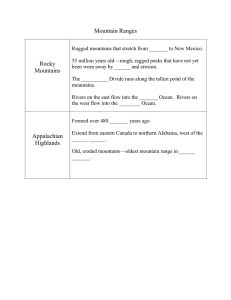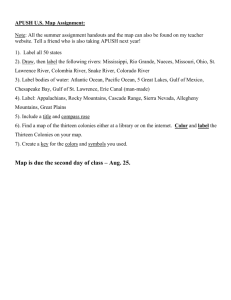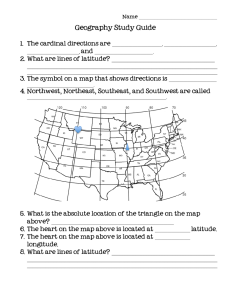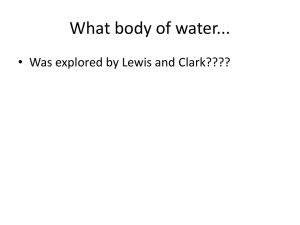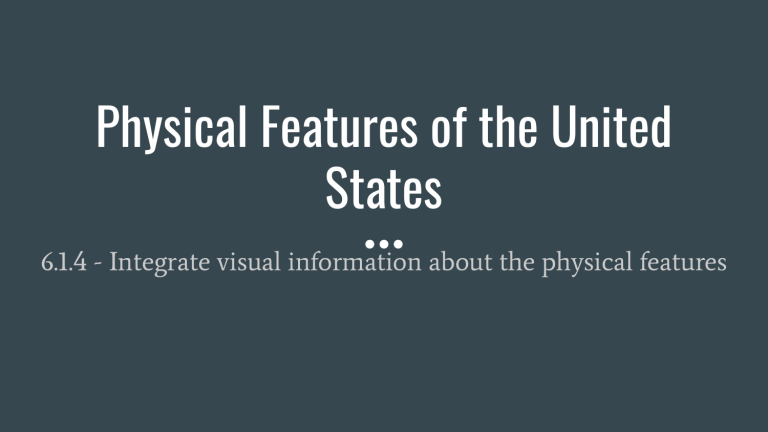
Physical Features of the United States 6.1.4 - Integrate visual information about the physical features Bodies of Water 1. Atlantic Ocean - located along the eastern coast of the United States 2. Pacific Ocean - located along the western coast of the United States 3. Gulf of Mexico - located along the coast of Texas, Louisiana, Mississippi, Alabama, and Florida 4. Great Lakes - located on the northern border of the United States and southern border of Canada - Ontario, Erie, Huron, Michigan, and Superior 5. Mississippi River - begins in Minnesota and empties into the Gulf of Mexico 6. Missouri River - begins in South Dakota and empties in the Mississippi River 7. Ohio River - begins in Pennsylvania and empties into the Mississippi River Great Lakes Missouri River Mississippi River Pacific Ocean Ohio River Gulf of Mexico Atlantic Ocean Mountain Ranges 1. Appalachian Mountains - runs from southern Canada into Alabama, second longest mountain range in North America 2. Rocky Mountains - runs from Canada to Texas, longest mountain range in North America 3. Sierra Nevada Range - located on the eastern border of California 4. Cascade Range - runs from Washington into northern California Cascade Range Sierra Nevada Range Rocky Mountains Appalachian Mountains Land Resources 1. Atlantic Coastal Plain - located between the Atlantic Ocean and the Appalachian Mountains, begins in Maryland and goes south to Georgia 2. Gulf Coastal Plain - located along the coast of the Gulf of Mexico 3. Central Lowland (also called Interior Plains) - area of widespread cropland located in Iowa, Illinois, Indiana, and Ohio 4. Great Plains - area of widespread cropland located from North Dakota to Texas 5. Great Basin - area of very dry land located between the Rocky Mountains and Sierra Nevada Mountains Great Basin Great Plains Central Lowlands Atlantic Coastal Plain Gulf Coastal Plain
